Relocating to Amsterdam: Everything You Need to Know
December 12, 2025
Discover essential tips for relocating to Amsterdam, The Netherlands, including neighborhoods, costs and expat life.
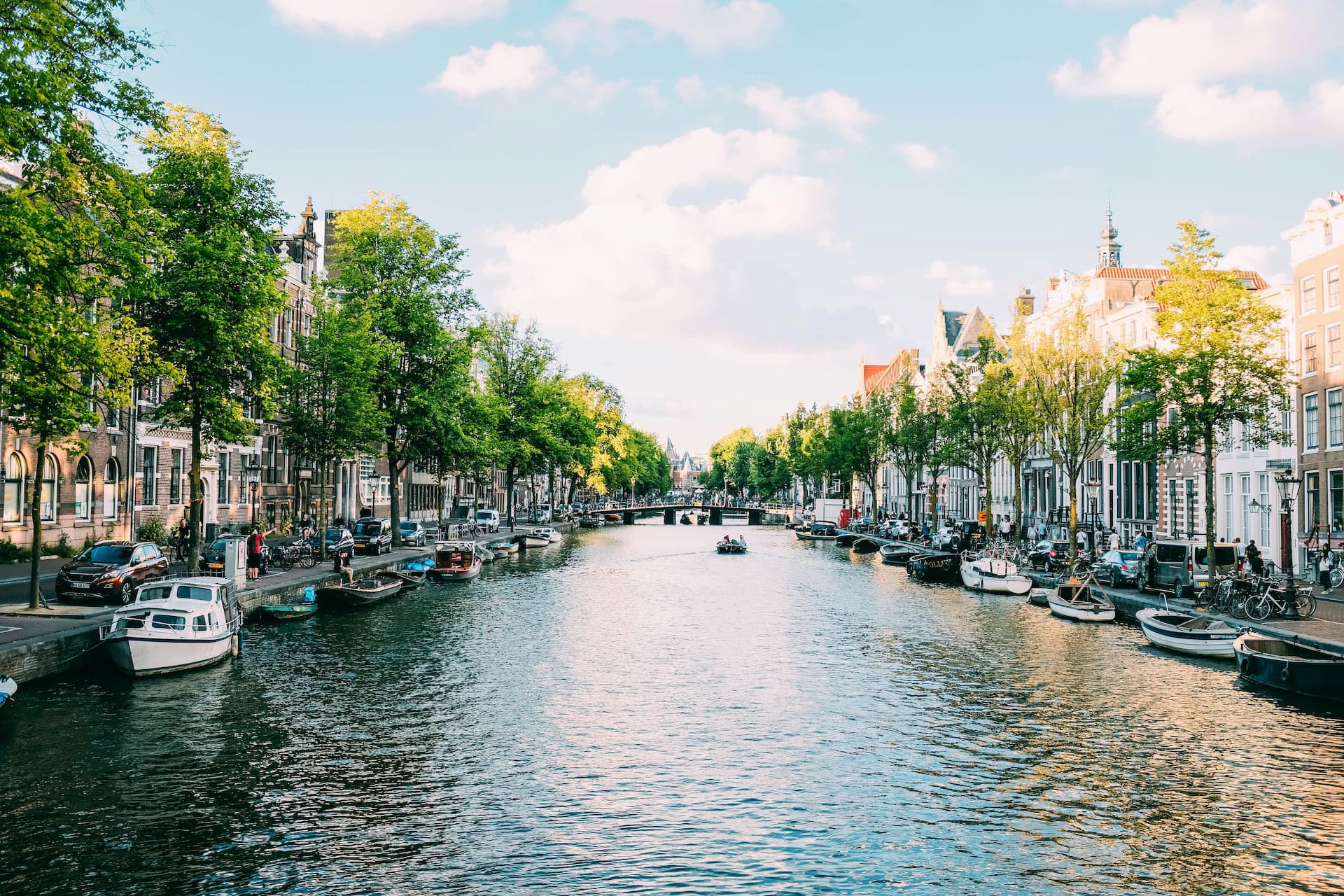
Consistently named as one of the world’s most livable cities, there’s a reason why Amsterdam continues to be a favorite among expats in Europe. Blending a vibrant international community with the pragmatic, laid-back spirit of Dutch culture, the city delivers a high quality of life and a progressive, culture-first outlook. If you’re thinking about making the move, here’s how to relocate to Amsterdam.
Working in Amsterdam as a foreigner
The Netherlands is welcoming to foreign professionals, but your visa situation determines how smooth the ride will be. While EU citizens can work freely, non-EU citizens typically need a Highly Skilled Migrant Visa, often sponsored by employers in tech, creative or consultancy sectors. Entrepreneurs may qualify for a Start-up Visa.
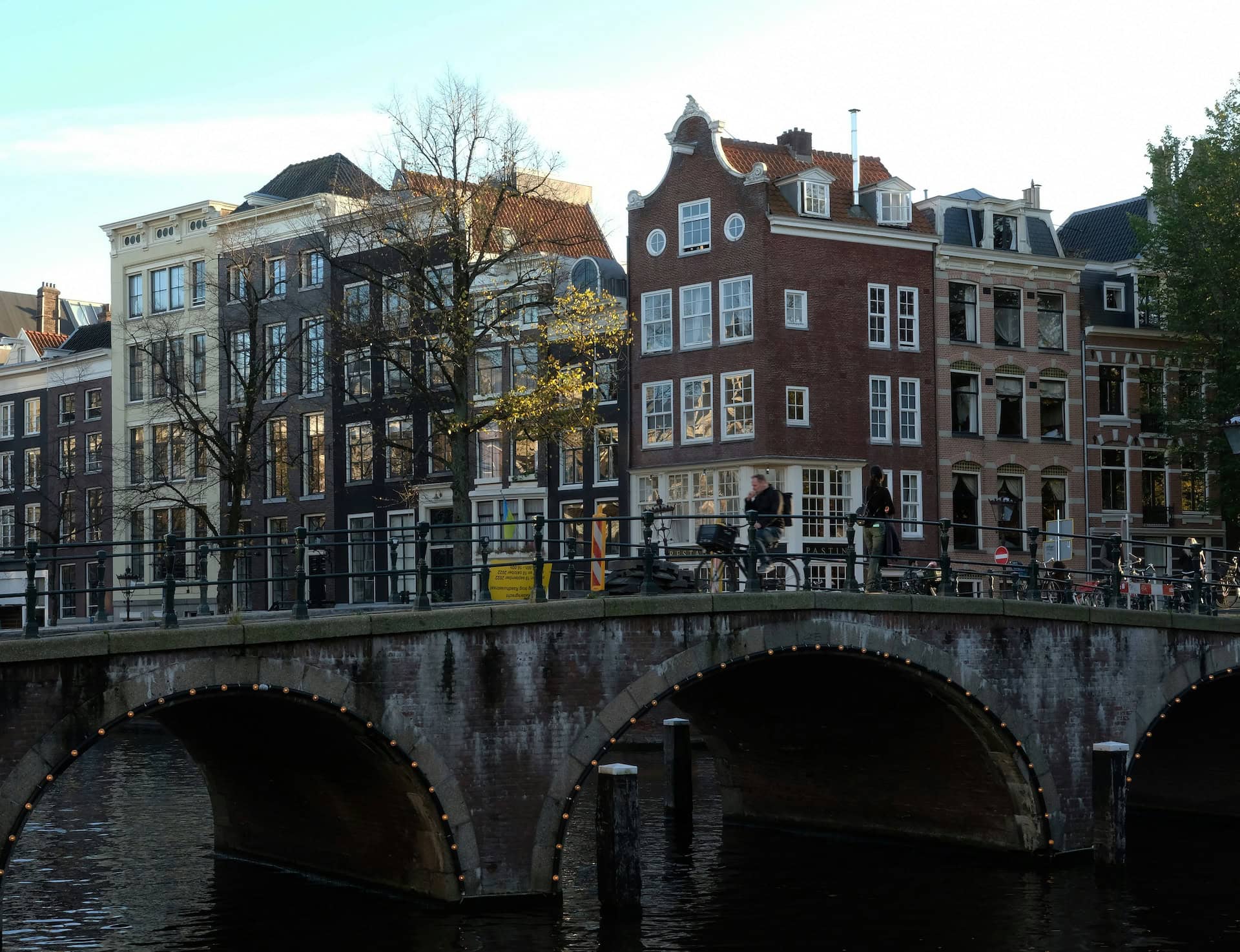
The job market in Amsterdam is strong in areas like fintech, design, sustainability and mobility. Amsterdam is also a breeding ground for startups and scale-ups. Many corporate roles are conducted in English, though knowing some Dutch definitely gives you an edge. While many people regard learning Dutch as a non-priority because of the local population’s high proficiency in English, an understanding of the language certainly helps with integration and building cultural competency.
Tackling Dutch bureaucracy
First things first: Once you’ve found a local address, register with the Gemeente (municipality) to get your BSN (citizen service number). If finding an Amsterdam address proves difficult in the highly competitive housing market, finding temporary relocation housing at Zoku Amsterdam allows extended stay residents to register ensuring that you can proceed with the bureaucratic chain of events before finding a long-term housing solution. Once you have your BSN in hand, you can open a bank account, sign up for healthcare, which is mandatory and pay taxes. Next, set up your DigiD, an essential digital ID used to interact with government portals.
The 30% ruling, if you’re eligible, gives you a hefty tax break as a skilled migrant, check this as early as possible with your employer or a tax advisor.
Understanding the cost of living in Amsterdam
Amsterdam is known for its aesthetic appeal, not necessarily its affordability. Compared to cities like London or New York, Amsterdam’s lifestyle quality and work-life balance is high. On average, rent prices are more reasonable, public transport is cheaper and healthcare is dramatically less expensive due to regulated insurance. Compared to other major European cities like Berlin, Amsterdam is pricier, but it is already accommodating to English-speaking professionals.
However, when compared to other major global hubs, it offers solid value. But like many major cities, rent will be your biggest expense. A one-bedroom apartment in the city center will likely set you back €1,600-€2,200 per month, while living slightly outside city limits will see more favorable prices.
Other expenses like utilities cost around €200 per month and grocery costs hover between €250-€400 per person per month. As the city offers a vibrant dining, cultural and nightlife scene, you should also factor these costs into your daily budget.
Choosing the best neighborhoods in Amsterdam
Though its center is compact, Amsterdam has seven boroughs, each with its own distinct qualities. Those further away from the center tend to offer more space at a more competitive price but also require more travel time between points. That being said, Amsterdam is a relatively small city and is well-connected, especially if you are willing to adopt two wheels as your primary form of transportation. On a bike, the best of the Dutch capital is at your fingertips, regardless of where you decide to settle your home roots.
Suburbs like Amstelveen and Weesp are great for families, along with more central (but pricier) neighborhoods like Amsterdam Zuid, which offers quiet residential streets and proximity to parks like the Vondelpark or Amsterdamse Bos.
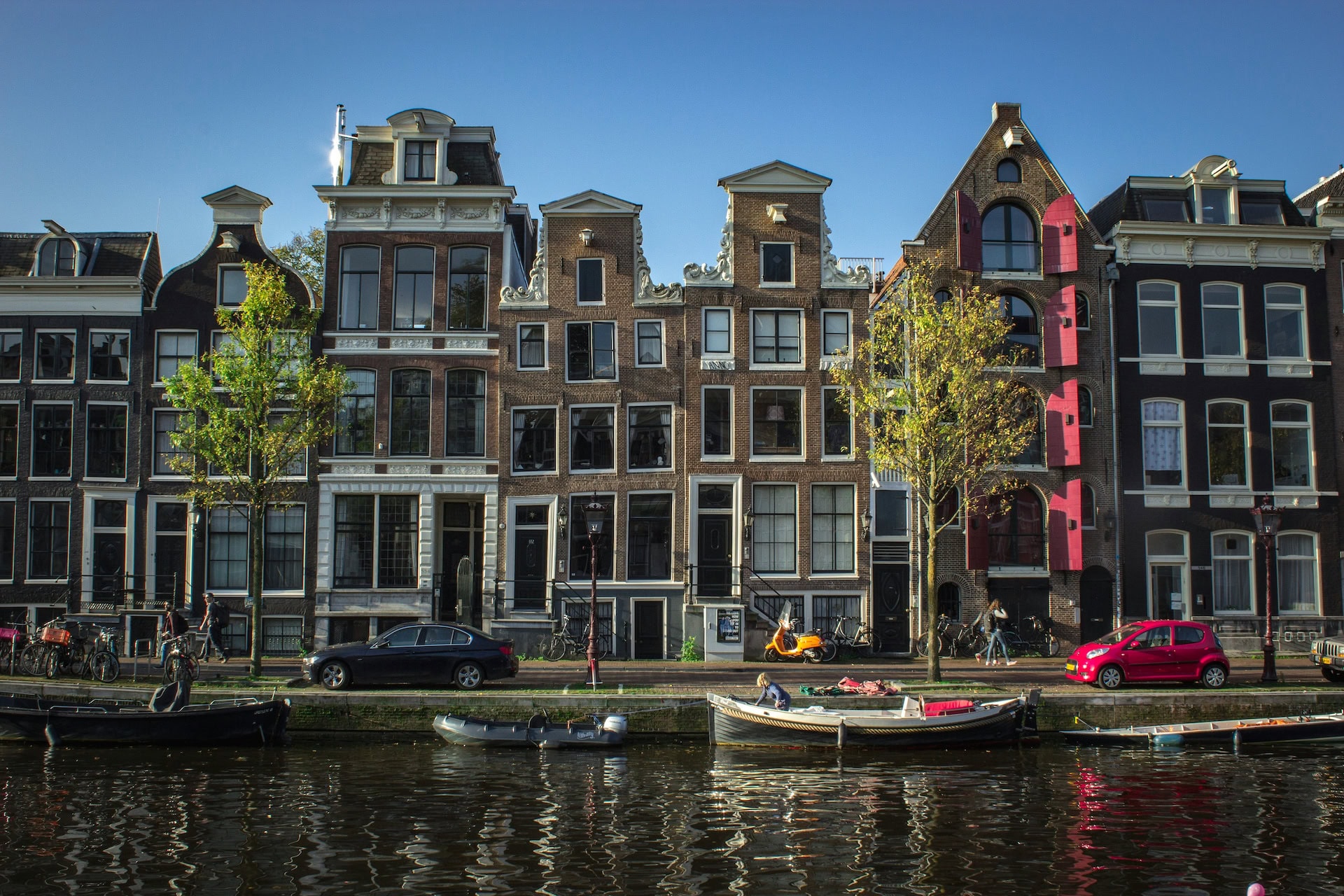
Neighborhoods like De Pijp and the Jordaan are popular for their convenient locations and local energy. De Pijp’s beating heart is the almost daily Albert Cuypmarket street market, but you can find plenty of boutique fitness studios, shops and cafés, restaurants and bars. The Jordaan embodies Amsterdam’s vintage charm with its historic architecture and narrow streets. Classic Dutch “brown bars” and trendy eateries are equally present here, giving you the best of both worlds. If you’re looking for a bit more space than the famously tight city center, stadsdelen, or districts, Amsterdam Oost and Noord are great options.
Proximal to the city center and nestled in between a triad of parks, Vondelpark, Westerpark and Erasmuspark, neighborhoods like Oud West and De Baarsjes are also popular among young people. Punctuated with canals lesser known but equally beautiful to the historic center, these neighborhoods are known for all things trendy: restaurants, bakeries, bars and more.
Securing a place to live: Renting vs. buying
Unless you’re settling down for the long haul, renting is the way to go. Buying property as a foreigner is possible but layered with requirements and hidden costs. Most expats and professionals opt to rent, either furnished or semi-furnished apartments, during their first years. It’s often advisable to start with a short-term rental or relocation accommodation to get a feel for the different neighborhoods before committing to a longer lease.
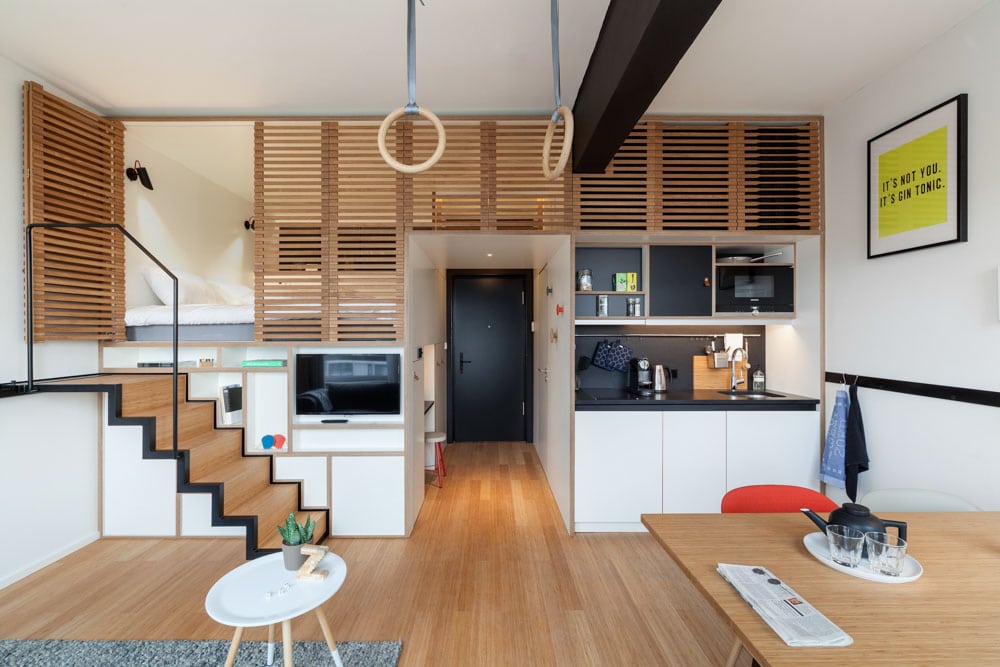
When first establishing your roots in Amsterdam, Zoku’s Lofts provide a comfortable living environment with the added benefit of a community, so you can meet people as soon as you arrive. This makes it easier to settle in while you search for a more permanent residence. This can be especially handy considering how competitive finding housing can be. Sites like Funda.nl and Pararius are key tools in your search for housing in Amsterdam.
Getting around: Public transport in Amsterdam
Amsterdam’s transport infrastructure is well-connected and reliable. Trams glide through the city like clockwork, and metro lines connect outlying neighborhoods to the center. Getting an OV-chipkaart, which can be used to pay for all forms of public transportation in the Netherlands, makes switching between buses, trams and trains seamless, even if you’re travelling outside the capital city.
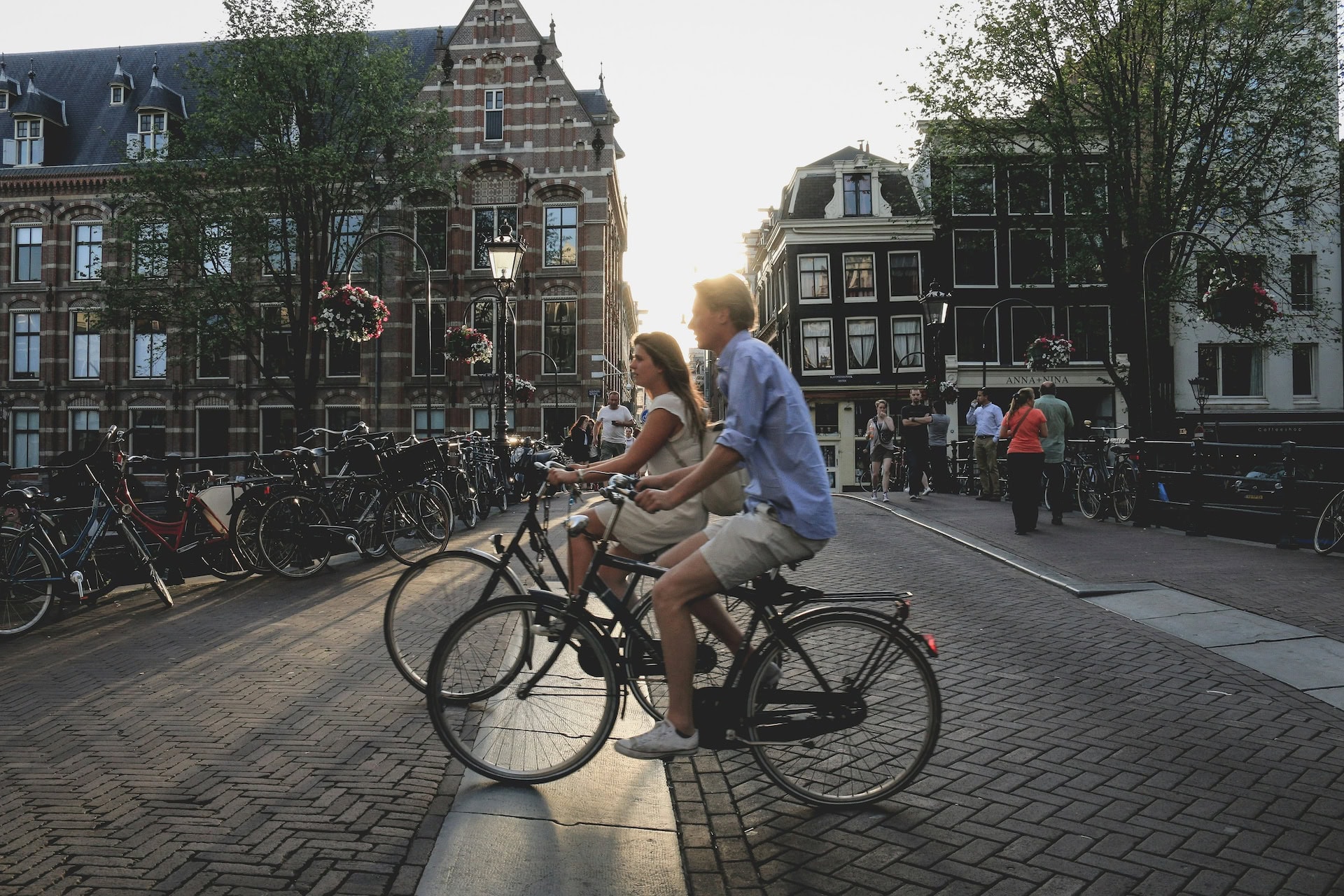
While the public transportation system in Amsterdam is strong, getting around on a bike is by far the most convenient way. Besides being fast and efficient, it’s a great way to get your bearings in a new city and discover new things. The Dutch, and Amsterdammers alike, are serious about biking. Don’t be intimidated but be prepared to adopt local biking etiquette like signalling with your hands, keeping cycling paths clear and obeying local traffic rules like yielding to oncoming traffic on your right.
In the Netherlands, 44% of train travellers arrive at their station of departure on a bike, meaning that the combination of a bicycle with other forms of transport is common and convenient. If you’re working across multiple locations, pairing a bike with an NS Flex subscription or GVB monthly card is a smart move. Plan your transportation trips with apps like GVB.nl, 9292 and NS.nl help you plan routes
Making the most of your move
From the artistic treasures of the Rijksmuseum and Van Gogh Museum to the ever-growing restaurant and nightlife scene in Noord and street food stalls of Albert Cuyp Market, Amsterdam rewards the curious.
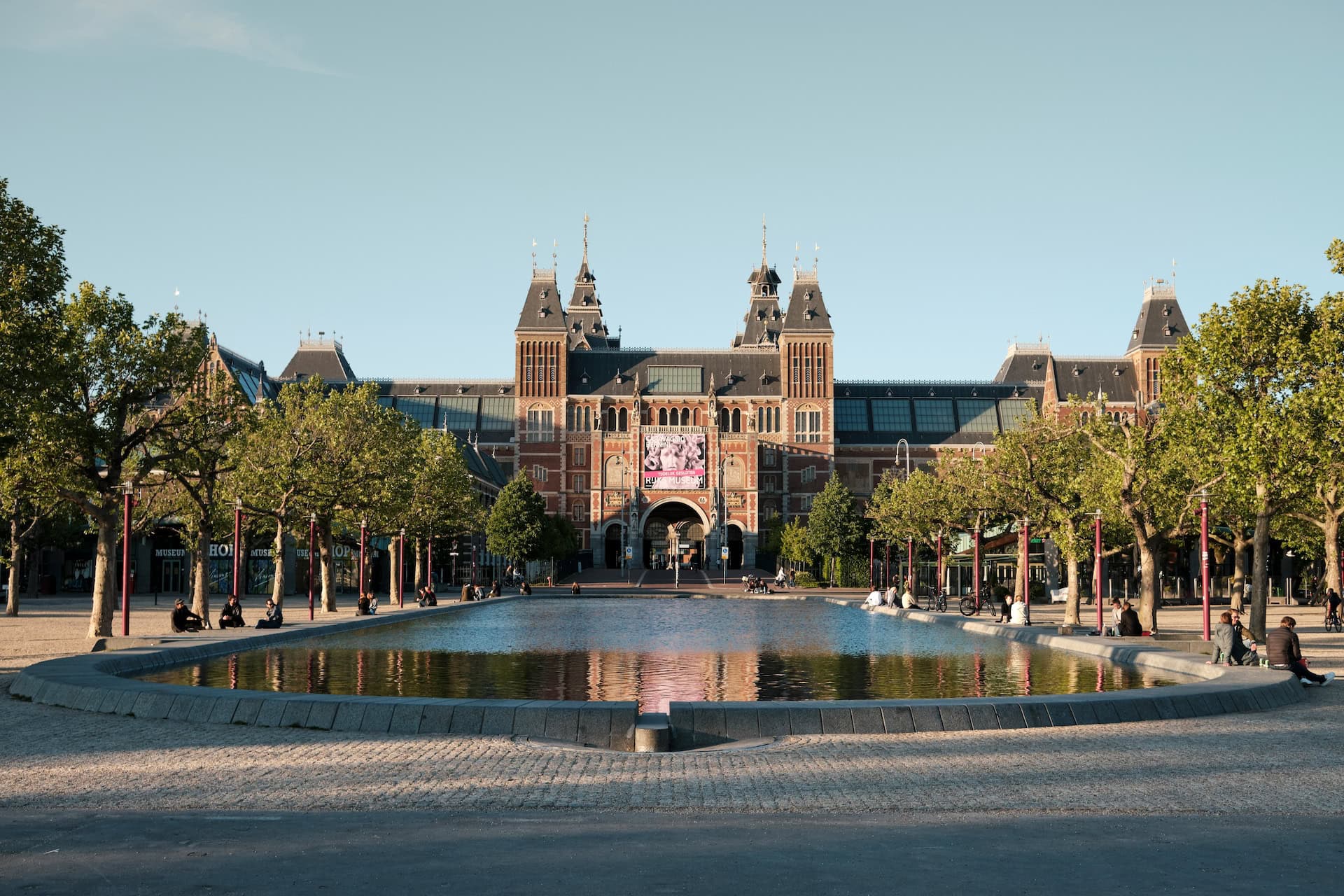
Want to fast-track your integration? Use resources like IamExpat.nl and Expatica for up-to-date info, events and relocation tips. Follow Instagram accounts like Welikeamsterdam, Amsterdamwithfel, Lekker.places, Hotspotfinders and Hotspotsforyou.nl for a regular roster of upcoming events.
Embracing expat life in Amsterdam
The international community in Amsterdam is vast, with over 50% of the city’s residents coming from a non-Dutch background. Because of this, there are many organizations and networks designed to make internationals like you feel welcome. From run clubs to professional networks, your people are out there! You’ll find your rhythm by joining language courses, social clubs, fitness studios or participating in meetups

Regular community events at neighborhood hotspots like Zoku offer a great way to immerse yourself in Dutch culture and meet new people. Whether it’s a professional workshop, language exchange or social gathering, these events provide a relaxed environment to build a social network and learn more about your new home. Instagram accounts like
You can also explore communities like Offline Club, Chillsnsip, & The Table, Women’s Social Club Amsterdam, Les Amis and Equals.nl, which regularly host events and are great resources for finding networks in the city. If you’re looking for a more active way to meet people, run clubs like Sunday Run Club and other social sports like Amsterdam Social Kickball League are great for staying fit while building new connections.
Your new adventure awaits
Relocating to Amsterdam can be an exciting yet challenging experience. While the logistics associated with a move abroad can be daunting, understanding the benefits of local life and why Amsterdam has become a favorite among expats makes it all the more worthwhile. Whether you’re staying for a season or settling in for the long haul, your relocation to Amsterdam can be more than a transition; it can be a transformative chapter.
SHARE
Discover a new kind of business hotel in Europe’s most livable cities.
We’re Zoku. Designed for the new generation of business travelers, we’re so much more than a long stay hotel. We’re a place you can call your second home, even on your first visit. We’ve created a hive of private Lofts and rooftop Social Spaces, so you can stay connected and well rested as you live and work throughout Europe. Throw yourself into your work and play, and effortlessly discover one of our home cities. It will be your home city next.
Related articles
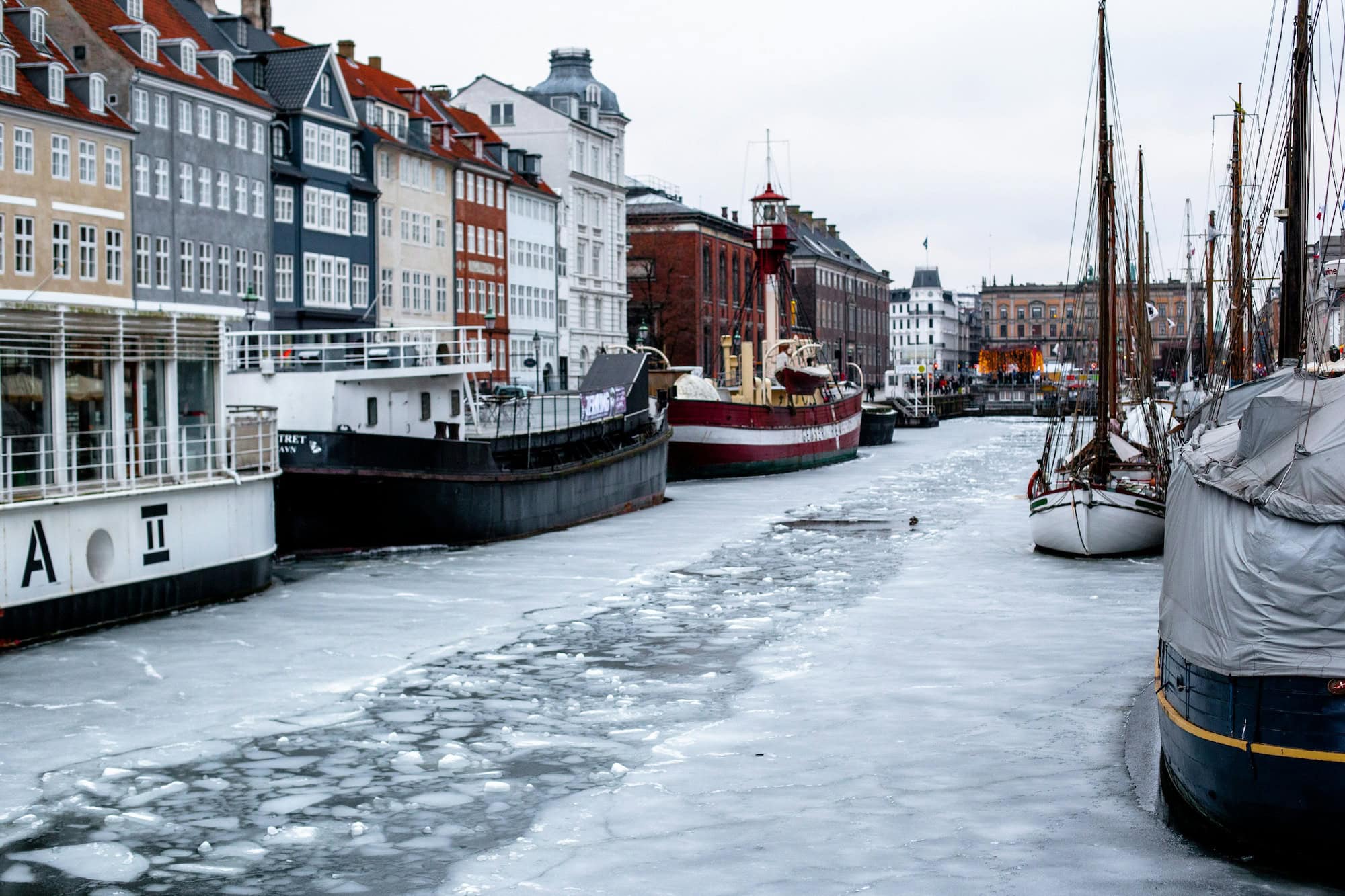
Explore winter in Copenhagen with dazzling light festivals, relaxing saunas and festive events!
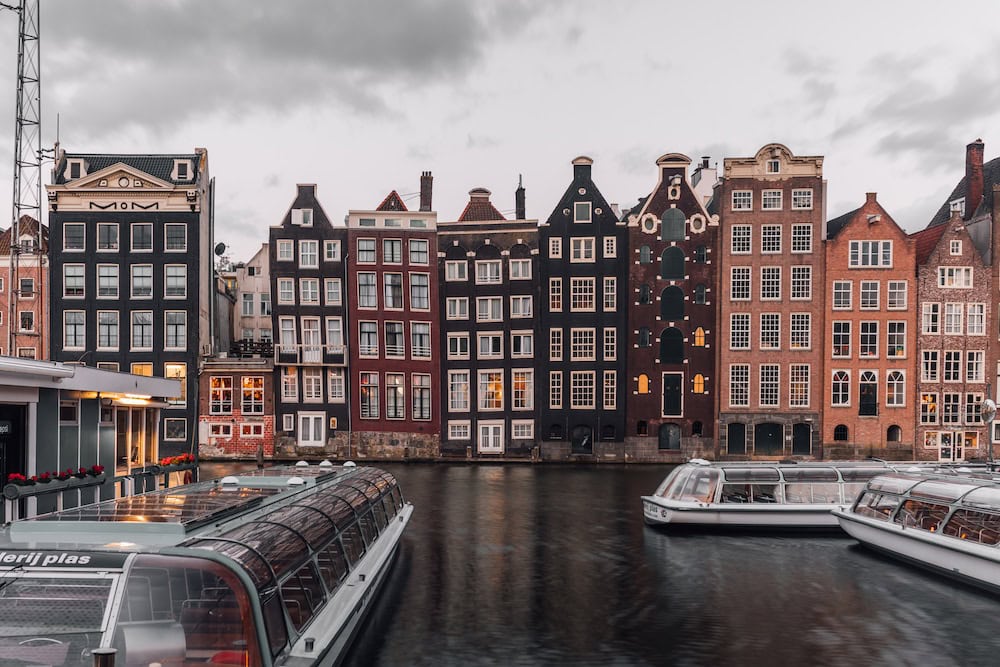
From glowing canals to wellness hubs, embrace the magic of winter in Amsterdam with our guide.
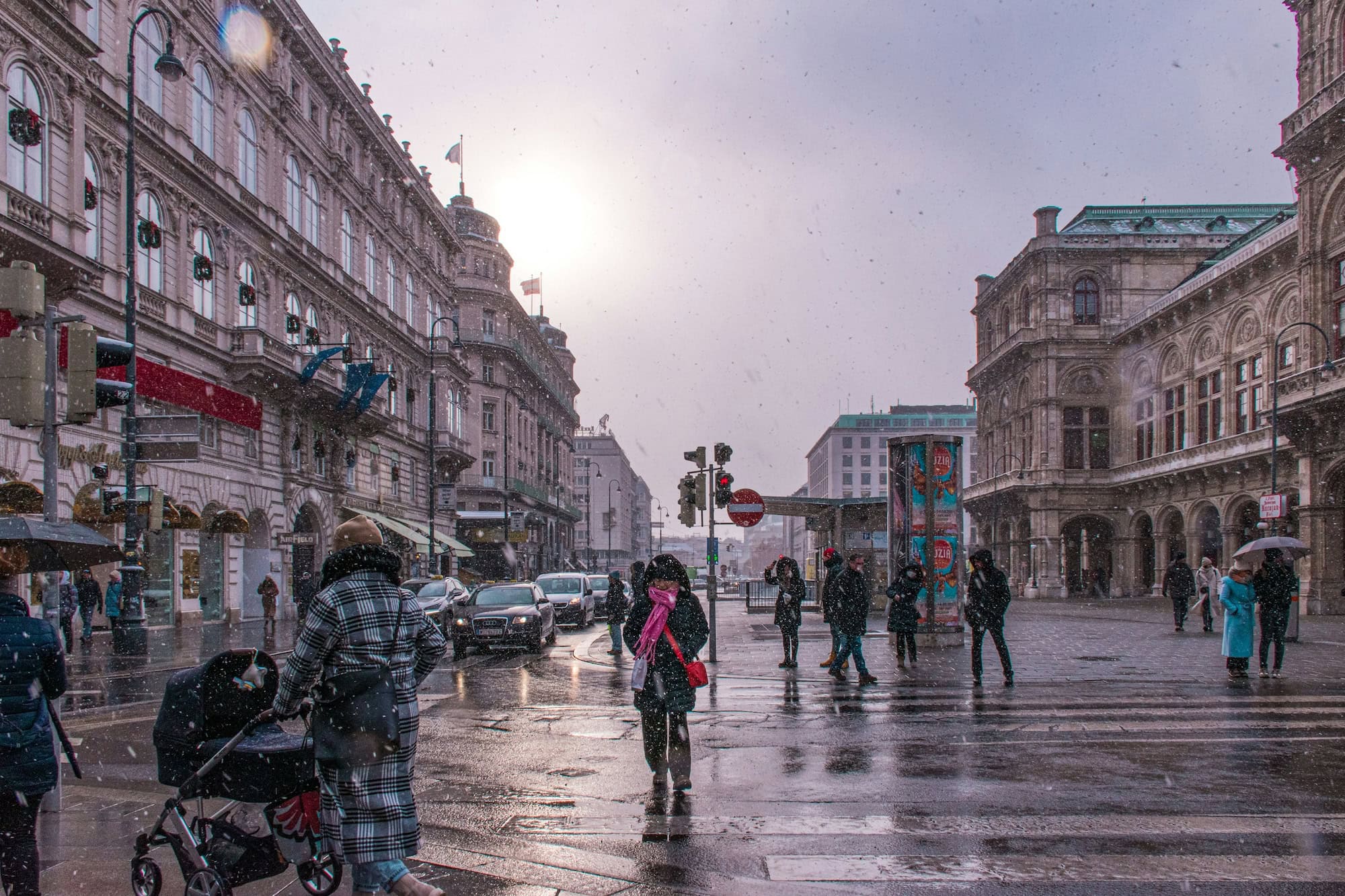
Experience the magic of winter in Vienna with classical music, waltz, wine tastings and more.

Experience the magic of winter in Paris with dazzling ballet, vibrant night markets, and hot chocolate stops.
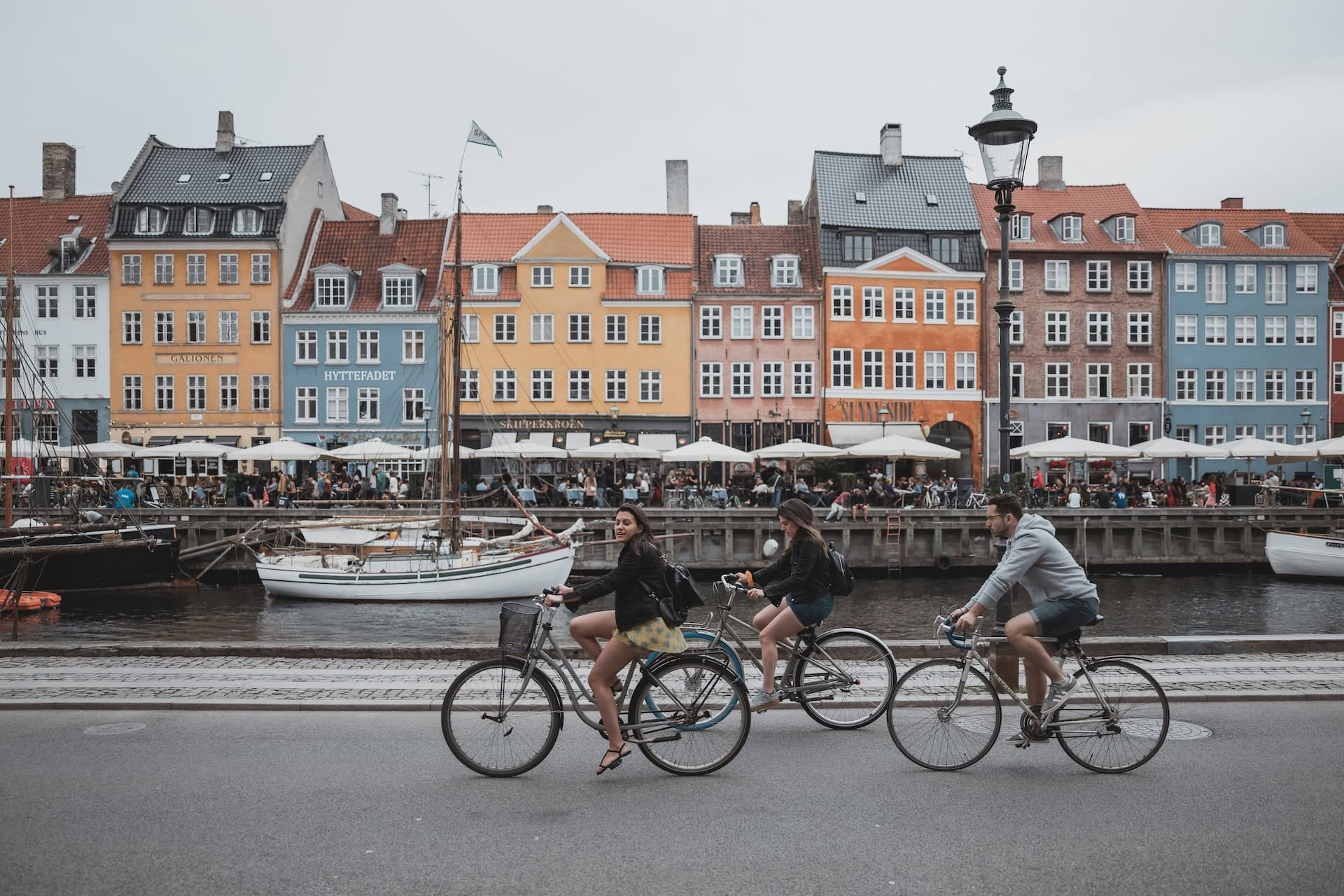
Discover these essential steps before relocating to Copenhagen for a seamless move to the Danish capital.

For this remote worker and world traveler, thoughtful design and quiet workspaces made Zoku the kind of digital nomad hotel that adapts, not interrupts.

Explore the best Christmas markets in Vienna for 2025, from the fairy-tale scene at Schönbrunn Palace to artisan vibes at Spittelberg and the city-classic Christkindlmarkt at Rathausplatz.


